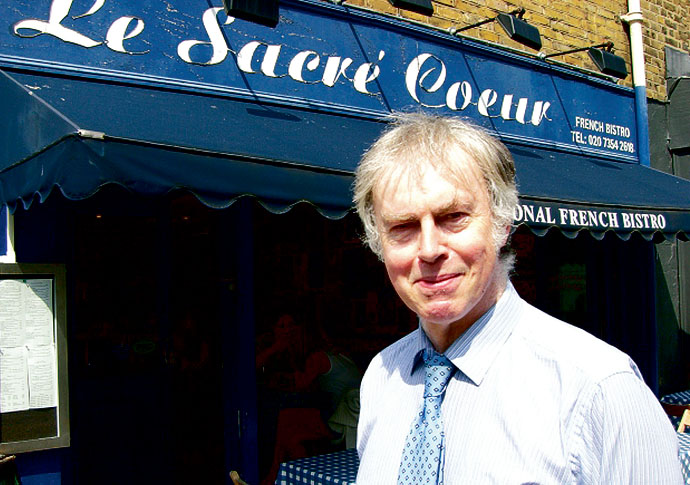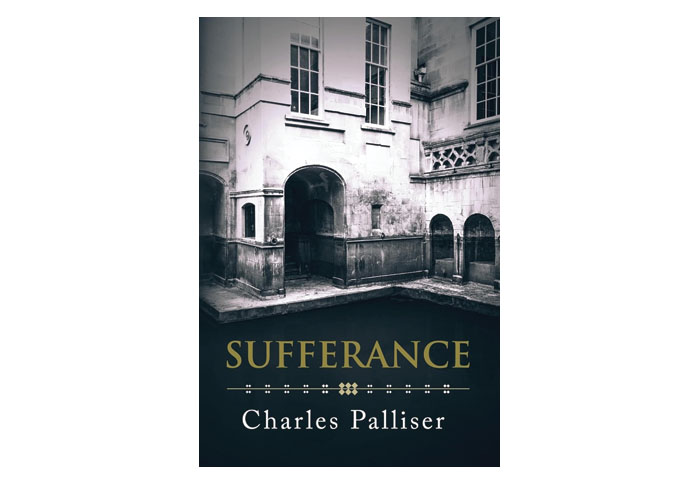Moral maze
Charles Palliser tells Dan Carrier how the Holocaust informed his latest novel, Sufferance
Thursday, 9th May 2024 — By Dan Carrier

Charles Palliser, author of Sufferance
A TERRIBLE choice with no good outcome – a moral dilemma with a consequence of a violent death: this is at the heart of Charles Palliser’s latest novel, Sufferance.
To consider responsibility towards others and what happens when you face a choice between one human life or another, he takes the reader on a tormented journey of a family caught up in a war and sheltering a girl who the authorities are seeking.
Charles, who lives in Islington, has a back catalogue that shows a common theme: taking a historical period and using it to consider timeless questions.
His latest work is set in an unnamed country at an unnamed time – but the assumption is we are talking about the Nazi invasion of European countries during the Second World War, the ensuing terror and the Holocaust.
The murder of millions of Jewish people and others by the Nazis has haunted Charles all his life. “I grew up in a small, out of the way place in Cornwall. When I was 13, I went to my local library. I found a book on the Holocaust. It was about 1961. Nobody had used the word Holocaust in front of me. I just did not know what had happened.

“I saw these photographs of piled up corpses. I was completely traumatised. This had happened just 16 years previously, just three years before I was born. It changed my views of reality, and of humans. I had no idea any human could be capable of that. It has stayed with me ever since.”
It prompted questions he long thought about: “Where does this evil come from? Why does it exist?”
Using his skill as a novelist to explore these issues was not something that came easily.
“I had an idea of a book about the Holocaust in the back of my mind, but it could not be exploitative, or sentimental or unoriginal,” he says.
“My first question is: do you have the right to fictionalise it? Survivors have written about it – so what right do I have? Think of Primo Levi’s work – there are just so many astonishing books.
“If you do fictionalise it, there is the danger you turn it into an exciting adventure story, and that is the last thing it should become. To sentimentalise it or tell it that way is just wrong. It speaks for itself.”
Then there is the need to be factually correct. If you draw on true stories – and the experiences Charles writes about draw on the lives of millions in occupied Europe – it means being careful as you find a way to illustrate the choices people faced.
“I thought I should use a situation not made up of victims or perpetrators, those vast reams of people who were caught up in it and then were implicated,” he says. “I wanted to convey the idea that if you had lived then, you could hardly avoid going along with it, or taking a stand.
“My character doesn’t realise what he is getting himself into and is then faced with moral decisions. How do people behave? What choices do they have to make?”
The reaction to this gut-wrenching question has been interesting, he says.
“People see it differently. Some may say he is greedy and this is to make money, to get himself a better job. Others have said he is well meaning, has good intentions. He is a decent man who does not realise what he is letting himself in for. I want the reader to think – what would I do in that position?”
The subject matter is not light reading and is a testimony to Charles’s powers that it is impossible to put away.
Hanging over the novel is the idea of a government behaving in a mindless and uncivilised way, but the citizens forced to obey what is clearly a violent, dangerous and illogical set of rules.
“When I read about the Holocaust I was always struck by the extraordinary bureaucracy that went into it,” he says.
“It was done with this insane, elaborate efficiency.”
And this bureaucracy held people’s lives in its hands.
“Bureaucracy meant there was a certain piece of paper that with the right stamp could save your life – or condemn you. It fills me with horror – if you don’t have the right stamp, that could be the end of you. There were any number of ridiculous and irrational rules and I wanted to bring that out, the state oppression and the forms it can take.
“A survivor’s story, written by a Jewish woman, has always stayed with me. She had a minor offence against her name. When she was rounded up with other people to be deported, they noticed she still had to serve the criminal sentence, so she was removed to see out that sentence first. Everyone deported died; she survived.
“That has always haunted me, and struck me of an example of the lunacy of the bureaucracy – how these decisions are made and could mean the difference between life and death in such an arbitrary way. You cannot understand it, and you can’t fight it. You can try to be resourceful but so much of it is about luck.”
This horrific concept is sadly the reality in many parts of the world. “People in Russian-occupied parts of Ukraine are going through this today,” he adds. “You have to register yourself as a Russian citizen or face consequences. They are taking children away from Ukrainian families and sending them to Russia. Essentially Nazism has returned to Europe. No one ever expected this to happen again.”
• Sufferance. By Charles Palliser, Guernica World Editions, £12.95